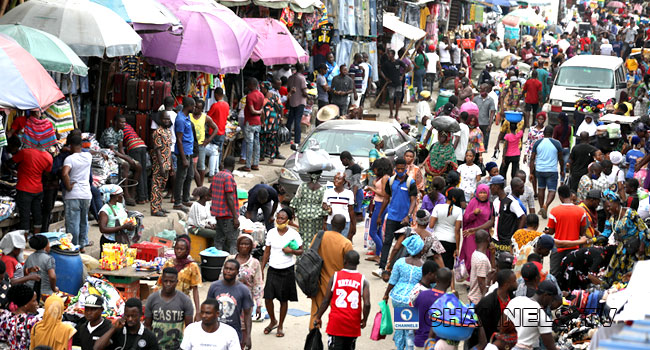133 million poverty index: Twists and turns as FG and states exchange blame
The Federal and State governors are currently exchanging barbs over the new Nigeria Bureau of Statistics (NBS) report that estimates 133 million Nigerians live in poverty.
Recall that in the first few days of November, the National Bureau of Statistics (NBS) reported that 133 million Nigerians, or 63% of the population, were multidimensionally poor.
According to the research, the nation’s escalating poverty is a result of low access to education, living conditions, health care, employment, and security.
It also stated that 35% (almost 47 million) of the country’s poor inhabitants reside in the South, compared to 65% (86 million) who do so in the North.
Following the publication of the NBS report, SERAP attributed Nigeria’s growing poverty to mismanagement and corruption in the spending of trillions of naira on social safety nets and programmes to reduce poverty, including the reported allocation of more than $700 million from the funds returned from Abacha looting.
A few economists also cited the federal, state, and local governments as being responsible for the extreme poverty that millions of Nigerians now experience.
But last Wednesday, the federal government came out and said that State governors were to blame for the nation’s rising percentage of poverty. This was in response to a number of critiques and condemnations that followed the report.
Following the weekly Federal Executive Council meeting in Abuja, Clement Agba, the honourable minister of state for budget and national planning, gave a press conference at the White House and blamed the high poverty rate on governors’ misplaced priorities.
The construction of infrastructure, such as bridges and airports in cities, was prioritised by the governors, according to Agba, who also added that State governors decided to spend State resources on the capital cities rather than enhancing the lives of people in rural communities.
“The governors are basically functioning in their State capitals. And a democracy that we preach about is delivering the greatest goods to the greatest number of people. And our demography shows that the greatest number of our people live in rural areas, but the governors are not working in the rural areas.
“I think from the Federal Government’s side, we are doing our best. But we need to say that rather than governors continuing to compete to take loans to build airports that are not necessary, where they have other airports so close to them, or governors now competing to build flyovers all over the place, we appeal that they should concentrate on building rural roads so that the farmer can at least get their products to the market,” he said.
State governors, operating under the auspices of the Nigeria Governors’ Forum, responded to the federal government’s assertion that they were to blame for the rising rate of poverty among Nigerians. They said that the federal government was to blame.
According to the NGF, the country’s rising rate of poverty is a result of the crippling impact that insecurity has on commercial and agricultural operations.
NGF accused FG of failing to uphold its responsibility to address the security issues impeding the nation’s economic activities.
The NGF further claimed that by doing nothing, the Federal Government had permitted bandits, insurgents, and kidnappers to turn the nation into a battlefield.
“This dereliction of duty from the centre is the main reason why people have been unable to engage in regular agrarian activity and commerce. Today, rural areas are insecure, markets are unsafe, travel surety is improbable, and life for the common people generally is harsh and brutish.
“How can a defenceless rural population maintain a sustainable lifestyle of peace and harmony when their lives are cut prematurely, and they wallow permanently in danger? How does a minister whose government has been unable to ensure security, law, and order have the temerity to blame governors?” it said in a statement.
An unnamed private financial management consultant who spoke to PulseNets argued that all levels of government, including the federal, state, and municipal governments, should be held accountable.
He bemoaned the fact that the problem of poverty is a result of the country’s many levels of government making poor policy decisions throughout time.
“First, the government at the centre seems to be directionless; there is no clear-cut economic blueprint it’s working with. Its policies are more of a cut-and-join approach. The problem started right from the time it took over power from the previous administration. How can one justify the delay in constituting the federal cabinets in 2015? Do you think it did not have negative effects?
“We are aware of the impact of COVID-19 and, recently, the war in Ukraine on the world economy, especially on the economies of developing countries, but it is not enough an excuse for the deep mess the nation has found itself in.
“The problem is even more compounded at the State level of government. The governors are notorious for gate-crashing at Abuja every month to collect monthly allocations; aside from that, the governors don’t have a plan on how to develop human capital within their areas of jurisdiction. One may say that it is a structural problem of our own type of federalism, but it is not a sufficient reason for bad governance.
“Even though everyone would readily want to lay blame on the federal government, how do you justify the strangulation of local governments under the supervision of State governors? We are all in the know of how the State governors treat local governments as if they are private estates.
“I think the causal factors of poverty in the country are complex, even though these factors are within the purview of the various levels of government, be it federal, State or local government. One may look at it from the angle of security, education, social infrastructures and the economy,” he said.













